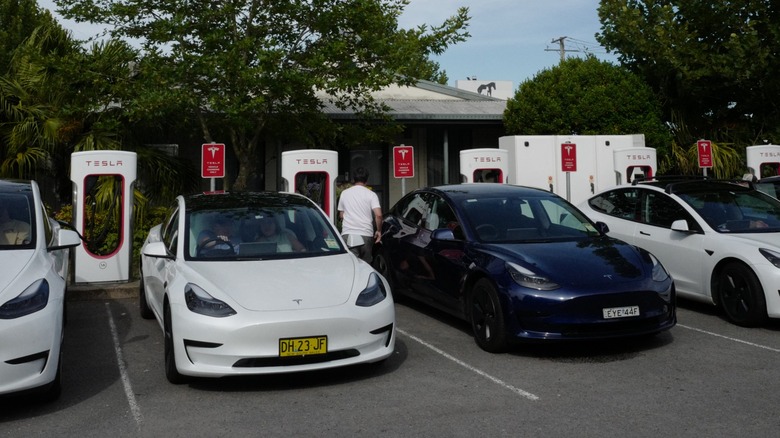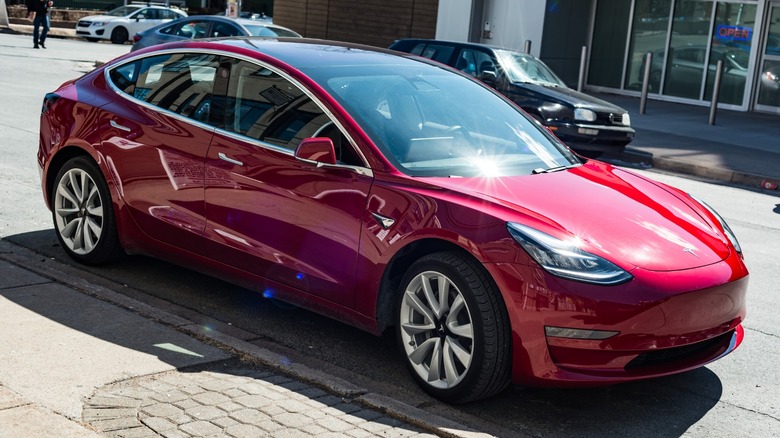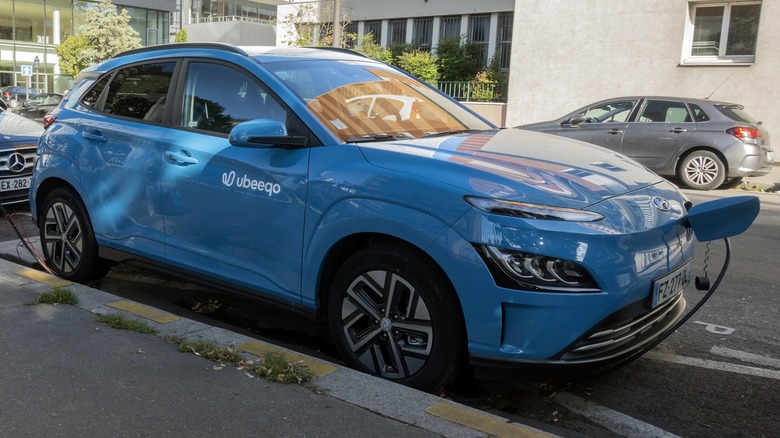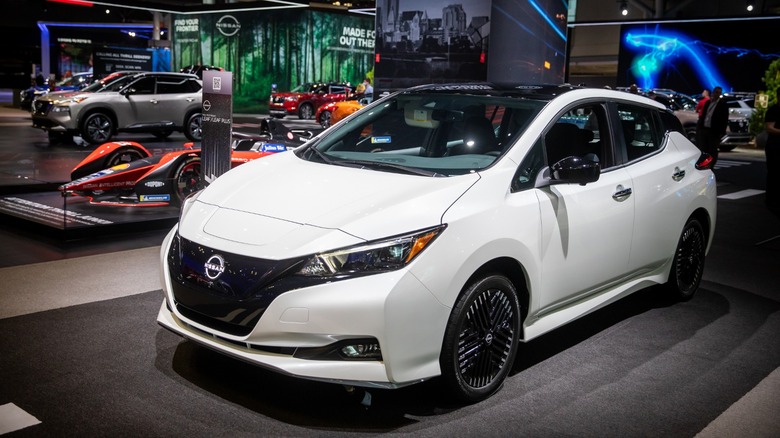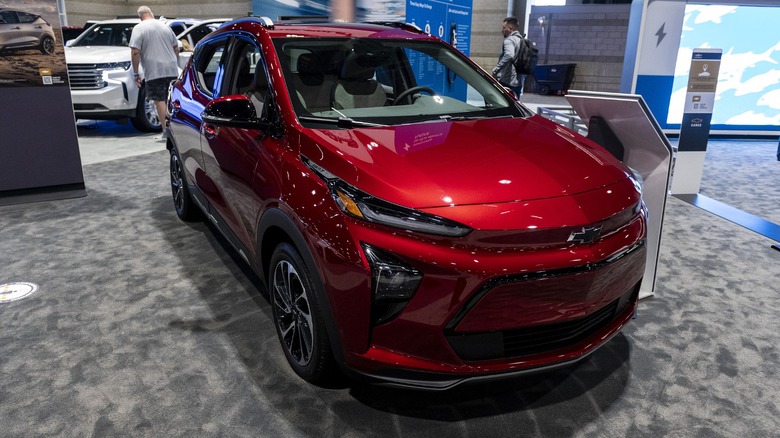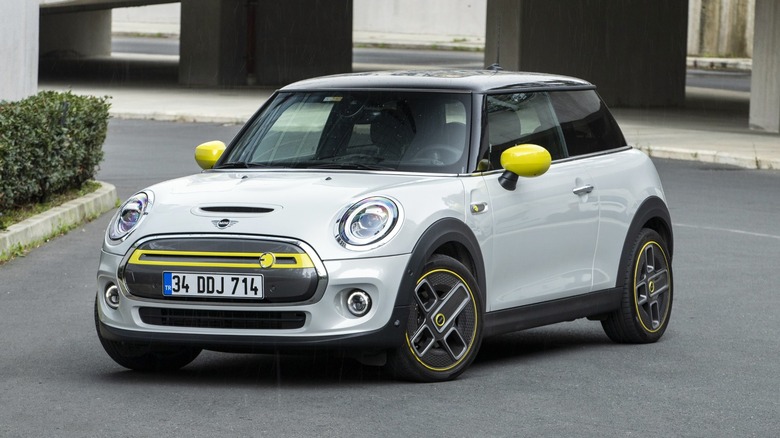5 Used EVs That Could Qualify For Tax Credits In 2024
Many people are eyeing EVs as their next vehicle purchase, especially as they reduce personal emissions and cost less to recharge than filling up a traditional gas car. However, brand-new EVs are still expensive, averaging $53,376, according to CarEdge.
Even with new EV incentives amounting up to $7,500, this is still above the budget of many car buyers, meaning they either have to settle for a used EV or buy a traditional gas guzzler instead. Thankfully, the Department of Energy created a new scheme to incentivize used EV sales with a $4,000 tax credit.
According to Statista, more than 43 million used cars were sold in the US in 2021—almost three-quarters of the total vehicles sold that year. With the used EV tax credit, EVs will be more accessible to everyone, allowing more people to get into cleaner cars.
So, if you're in the market for a used EV, check out these five models that qualify for the used EV tax credit in 2024.
2019 Tesla Model 3
When looking for a used EV, you must consider one of the most popular EVs in the US: the Tesla Model 3. This car was the first relatively affordable model from Tesla, allowing more people to own one. At the time of writing, a brand-new base Model 3 starts at $38,990, which is still a lot of money.
But you could get a used 2019 Tesla Model 3 straight from the Tesla Inventory for less than $25,000. Although it may no longer have the 272-mile maximum range of new base Model 3s, you could still get 240 to 250 miles from a single full charge.
But if you're willing to choose an even older Tesla, you could buy a 2018 Model 3 Long Range that can still deliver over a 300-mile range. Both examples mentioned have no accident history, so you'll likely get a fresh unit. However, you should note the location of your chosen unit, as some cars could be in a different state, and shipping them to your area could cost as much as $2,500.
2021 Hyundai Kona EV
If you don't like the all-touchscreen affair on the Tesla, the 2021 Hyundai Kona is a great alternative. The 2019 model received glowing reviews when it launched in the US, and the 2021 largely maintained this.
Although the Kona is a crossover, it's in the sub-compact category, meaning the Model 3 has more cabin space. However, because it has a rear hatch, it has a larger opening, making it easy to pile stuff in the back. And when you drop the rear seats, you get more space—enough to fit in four oversized luggage bags and then some.
However, if you're considering the Kona, we recommend sticking to the 2021 to 2022 model years. That's because Kona EVs built from 2018 to 2020 were part of a massive recall due to a battery fire risk.
Aside from that, the 2021 Hyundai Kona EV is a great first electric car. For example, this certified option from Cars.com has less than 10,000 miles on the clock and still retains its original expected range of around 258 miles. This exact car's model year is over two years old, and it's just a smidge below $25,000, so it qualifies for the $4,000 used EV tax credit.
2022 Nissan Leaf SV Plus
Before we had the Tesla Model 3 as the EV for the masses, we had the Nissan Leaf. On paper, the Nissan Leaf is affordable if you buy it new, starting at just $28,140 for the base model. However, you can get a slightly used higher-spec option for less than $25,000—saving you $3,000 right out of the gate. And if you consider the additional $4,000 Federal Tax Credit if the used Nissan Leaf you buy qualifies for the incentive, you save $7,000 in total—and you get a nicer interior to boot.
Furthermore, the base model Leaf only has a paltry 149-mile range. It might be good enough for city driving, but if you plan to take longer trips, you'll have to choose the Nissan Leaf SV Plus, which has a 212-mile range. The SV Plus starts at over $36,000, though, making it substantially more expensive than the base model.
That's why a used 2022 Nissan Leaf SV Plus looks like a great deal. You get almost the same range as a brand-new Leaf but at a steep discount. This certified pre-owned 2021 Nissan Leaf SV Plus on Cars.com only has a little over 10,000 miles, and its battery range score is still at 99%, meaning the car is almost as good as new.
2022 Chevrolet Bolt EUV
If you want an American sub-compact crossover on your driveway, look at the Chevrolet Bolt EUV. Unlike the Nissan Leaf, where the more expensive option has a longer range, both variants of the Bolt EUV can go up to 247 miles.
The base Bolt LT EUV starts at a little over $28,000. However, if you want more features, like leather seats, a 360 camera, and a panoramic sunroof, you must shell out over $5,000 more to get the Premier variant. That is, unless you buy used.
We found this 2022 Chevrolet Bolt EUV Premier on CarMax at less than $25,000. It has all the bells and whistles you're looking for, like Android Auto and Apple CarPlay, a 360-degree camera, leather seats, and less than 20,000 miles. It also features advanced driver assistance systems, like automated cruise control and lane departure warning. The only thing missing is the panoramic sunroof, but you're already getting a lot of value for the price it's going for.
The Chevrolet Bolt EUV looks good for a used EV, but the Nissan Leaf offers similar features for the same price point. If you can't decide, check out our Nissan Leaf vs. Chevy Bolt EUV comparison to see which one we picked.
2022 Mini Cooper S E Hardtop
Even if your budget is limited to used EVs, it doesn't mean you cannot get an iconic car. If you've always dreamed about getting a Mini, you could purchase a used one for less than $25,000 and still earn a $4,000 tax credit.
Yes, the Mini Cooper doesn't have much range—just 114 miles on a full charge—but you're not buying it because you want to go far. The Mini Cooper S E Hardtop is an excellent second car for short, leisurely trips around the metro or nearby cities. You could also get it for family members who just need a small car for errands.
Used Mini Cooper EVs are available on the Mini USA Pre-Owned page, where you can check for options available nationwide. However, the models we found there are not eligible for the tax credit as they're 2024 models.
But we did locate a green 2022 model with around 8,000 miles on it for $23,998 on CarMax. If you don't fancy that, we also saw this red 2021 model with 15,000 miles on CarMax. These are just examples, though, and may not be available for long.
These EV models qualify for the $4,000 federal tax credit, so you'll get additional savings if you buy them from a registered dealer. However, choosing them won't automatically mean you'll get the credit—check out IRS publication 5900 to learn more if you're eligible. If you want to see other used EVs that will give you the federal tax credit, check out this Department of Energy page to see the complete list of vehicles qualified for the credit.
